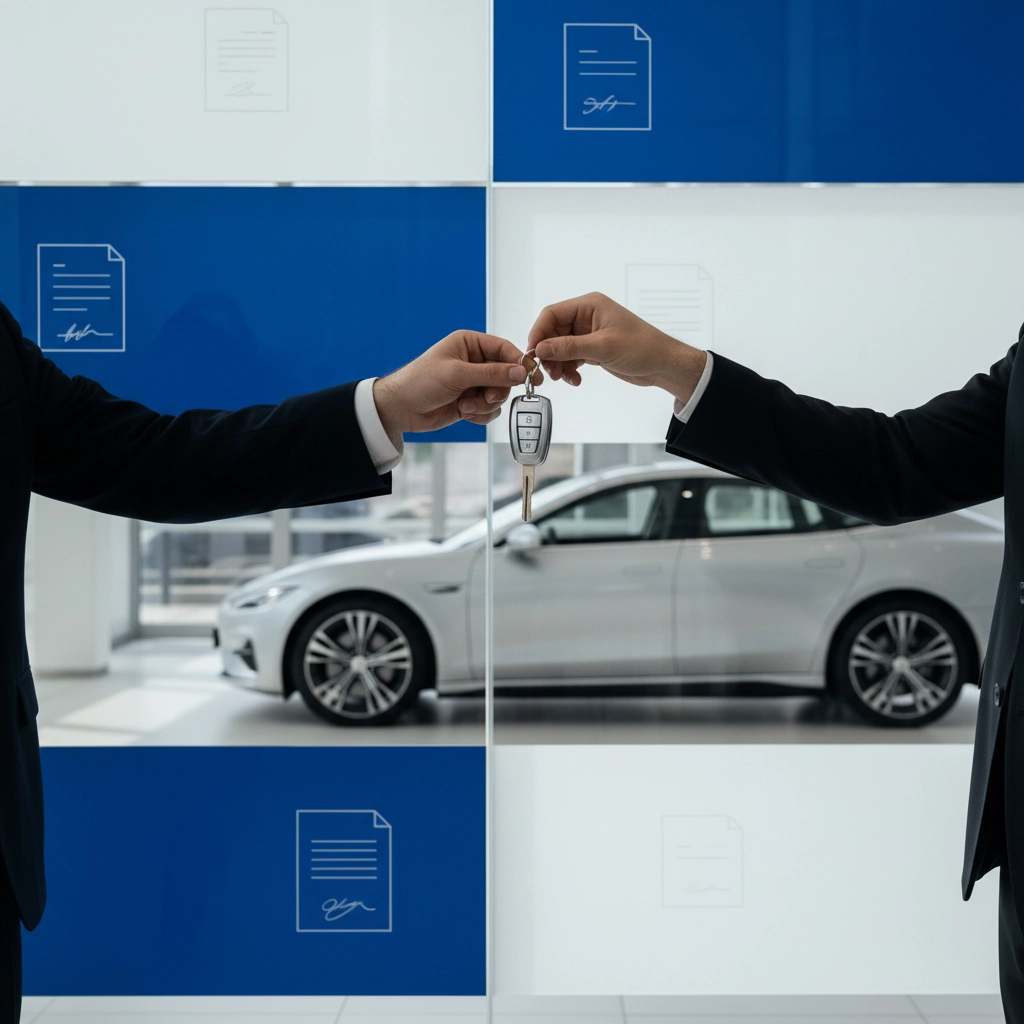If you’re dealing with a problematic vehicle, you’re probably wondering: “Does California’s Lemon Law protect me if my car is used or leased?” It’s one of the most common questions we get at our law office, and the answer isn’t as straightforward as you might think. With significant changes taking effect in 2025, understanding your rights has never been more crucial.
The short answer? Yes, both used and leased vehicles can be covered by California’s Lemon Law – BUT there are important conditions that determine your protection. Let’s break down exactly what you need to know.
New and Newly Leased Vehicles: Full Protection Under the Law
If you purchased or leased a brand-new vehicle in California, you’re in the best position for Lemon Law protection. New cars, trucks, motorcycles, and even RVs are fully covered under California’s Song-Beverly Consumer Warranty Act as long as they’re still under the original manufacturer’s warranty.
This means if your new vehicle has substantial defects that affect its safety, value, or use – and the manufacturer can’t fix them after a reasonable number of attempts – you may be entitled to a full refund or replacement vehicle.

Used Vehicles: The Certified Pre-Owned Requirement
Here’s where things get more complicated. Used vehicles are only covered by California’s Lemon Law if they are certified pre-owned vehicles that remain under the original manufacturer’s warranty.
This is a crucial distinction that many consumers don’t realize. A recent California Supreme Court decision significantly limited lemon law protections for regular used cars, even those with active warranties. The court determined that used cars don’t qualify as “new motor vehicles” under the Act, creating a challenging situation for consumers who purchase used vehicles from independent dealers or private parties.
However, certified pre-owned vehicles still maintain protection because they:
- Come with manufacturer backing and certification
- Include extended warranty coverage from the original manufacturer
- Meet specific quality standards set by the manufacturer
- Are typically sold through authorized dealerships
If you bought a used car that isn’t certified pre-owned, your Lemon Law options may be severely limited, even if the vehicle is still under some form of warranty coverage.
Leased Vehicles: Generally Protected Under the Law
Good news for lessees: California’s Lemon Law applies to leased cars, whether new or used, as long as the vehicle is still covered by the original manufacturer’s warranty.
If you leased a defective vehicle, you have the same rights and protections as if you had purchased it outright. This includes the right to pursue a refund of all payments made or a replacement vehicle if the manufacturer can’t adequately repair the problems.

For your leased vehicle to qualify for Lemon Law protection, it must meet these criteria:
- Leased in California for personal, family, or household use
- Still covered by the original manufacturer’s warranty
- Has substantial defects that impact safety, value, or use
- The manufacturer has had reasonable opportunities to repair the issues
The protection applies even if you’ve already returned the vehicle to the dealership, provided the problems occurred during your lease period and were properly documented.
Major Changes in 2025: What You Need to Know
Starting in 2025, California’s Lemon Law underwent significant procedural changes that affect how consumers can pursue claims. These changes make it more important than ever to act quickly and follow proper procedures.
Stricter Time Limits
The biggest change is the new filing deadline for those manufacturers that opted into the new law. You now have much less time to bring a lemon law claim. Under the 2025 rules, claims must be filed within one year after the warranty expires or six years from the vehicle’s delivery date, whichever comes first.
This represents a major tightening from the previous four-year statute of limitations that was based on when the defect was discovered. The clock is ticking faster, so don’t delay if you suspect you have a lemon.
Pre-Suit Demand Requirement
Before you can pursue civil penalties under the updated law, you must first send a written demand to the vehicle manufacturer requesting a repurchase or replacement. This isn’t just a casual letter – it must include specific information:
- Detailed description of the defects
- Documentation of all repair attempts
- Copies of your purchase or lease contract
- Repair orders and service records
- Vehicle registration information

The manufacturer then has 30 days to respond to your demand. If you skip this step, you can still file a lemon law claim, but you won’t be eligible to seek civil penalties, which can significantly reduce your potential recovery.
Vehicle Possession Requirements
Under the 2025 rules, you must have the vehicle in your possession when you send the repurchase or replacement demand letter. This means you can’t pursue penalties if you’ve already traded in or sold your lemon vehicle before initiating the formal process.
Expanded Coverage
The updated law now explicitly covers a broader range of vehicles, including cars, trucks, motorhomes, travel trailers, and towable RVs. This expansion provides protection for more consumers dealing with defective recreational vehicles.
Why You Need Experienced Legal Help
These 2025 changes make navigating California’s Lemon Law more complex than ever. Manufacturers and their legal teams are well-versed in these new requirements and may use procedural missteps to deny valid claims.
Here’s where having an experienced Lemon Law attorney like Sotera Anderson becomes invaluable:
- Proper Documentation: We ensure all required paperwork is completed correctly and submitted on time
- Strategic Timing: We help you meet the new, stricter deadlines while building the strongest possible case
- Manufacturer Negotiations: We handle communications with manufacturers and their representatives
- Maximizing Recovery: We pursue all available remedies, including civil penalties when appropriate

Attorney Sotera Anderson has successfully helped countless California consumers navigate these complex requirements and secure fair compensation for their lemon vehicles. The process doesn’t have to be overwhelming when you have expert guidance.
Don’t Let Procedural Requirements Derail Your Case
The new 2025 rules create numerous opportunities for manufacturers to escape liability based on technicalities. Missing a deadline, failing to include required documentation, or not following the proper demand procedures can jeopardize your entire case.
This is particularly important for consumers with used or leased vehicles, where coverage requirements are already more restrictive. You can’t afford to make mistakes that could cost you thousands of dollars in potential recovery.
Take Action Today
If you’re dealing with a problematic new, certified pre-owned, or leased vehicle in California, don’t wait to explore your options. The new time limits mean that delays can be costly, and the procedural requirements demand careful attention to detail.
Contact the Law Offices of Sotera L. Anderson today for a free consultation about your potential Lemon Law case. We’ll review your situation, explain your rights under the updated 2025 rules, and help you understand whether your vehicle qualifies for protection.

Remember, California’s Lemon Law is designed to protect consumers from defective vehicles, but only if you follow the proper procedures within the required timeframes. Don’t let a lemon vehicle continue to drain your finances and cause you stress – get the experienced legal help you need to pursue the compensation you deserve.
Visit our website to learn more about how we can help you navigate California’s updated Lemon Law requirements and fight for your consumer rights.
 Call Us Now
Call Us Now Text Us Now
Text Us Now
 (855) 965 3666
(855) 965 3666

